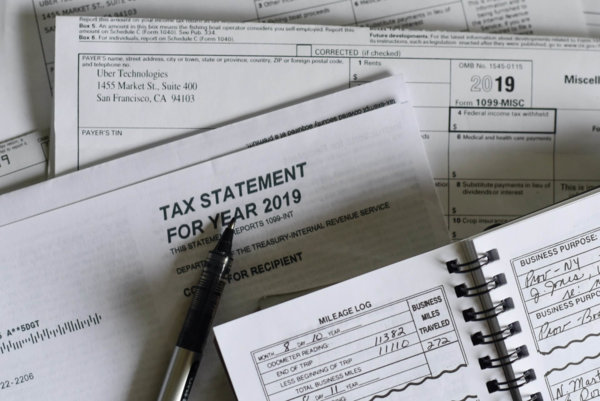How Does Social Security Work? - An In-Depth Guide
Social security is a program that was created in the 1930s to help older Americans who were not working, but needed money for things like food and shelter.
The government started this program by giving people money every month, and then they would use it to buy food and pay their bills. This way, old people could live without having to work or worry about paying rent.
Now, social security has grown into one of the most important programs in America. It gives money to millions of people each year, and it also helps them with medical expenses.
But how does this all work? Let’s take a look at how social security works today.
Also read: How Long To Keep Tax Returns

How Does Social Security Work Today?
Social security is a federal program run by the United States government. The government collects taxes from workers and employers, and uses those funds to pay benefits to retired people.
When you start working, your employer will contribute money toward your retirement. If you don’t have an employer now, you can still make contributions yourself.
If you do choose to contribute, you’ll put away 4 percent of your paycheck. Your first $6,000 worth of earnings are tax-free. Any amount over that is taxed at your regular income rate.
You can save more if you want to, but once you reach age 70, the government won’t let you earn any more on your own. You’re limited to putting away no more than $118,500 per year.
You can only claim up to $16,920 of your wages as taxable income. That means you’ll be able to keep around 75 cents out of every dollar you earn, before taxes.
Once you retire, you can get monthly checks from social security. These payments come from payroll taxes collected from your former employer.
Your benefit will depend on when you retire, how much you paid into the system, and how long you worked.
Also read: What Happens If You Don’t File Taxes?
What Are the Different Types of Social Security?
There are two basic types of social security: traditional and optional. Traditional social security is mandatory for everyone born after 1937.
Optional social security is available to anyone who wants it. Those who opt for it must wait until they turn 62, though.
In either case, there are three different ways to collect your benefits. You can receive a single payment, a series of smaller payments, or a combination of both.
Also read:How Much Do You Have to Make to File Taxes
Single Payment
With a single payment, you'll get one big check at the end of the year.
Series of Payments
In this method, you’ll get several small payments throughout the year.
Combination
A combination of single payments and series of payments lets you decide exactly what kind of payout you prefer.
How Do I Get My Benefits?
To get your social security benefits, you need to file a form called “your application for social security benefits.”
This form asks questions about your birth date, marital status, past employment history, and other information.
It also includes some paperwork to prove your identity and your eligibility for benefits.
After you fill out the form, send it to the Social Security Administration (SSA). They’ll review it and then issue you a decision letter.
The SSA may ask for additional documents to help determine whether you qualify for benefits.
After you get the go-ahead, you’ll receive a notice telling you how much you’re eligible for each month.

How Much Will I Receive?
Social security benefits vary depending on when you were born, how many years you worked, and how old you are today.
For example, someone who was born in 1938 would have been entitled to full benefits starting at age 65.
But someone who was born in 1943 would have had to wait until he turned 67 to get his full benefits.
Those who started collecting early could see their benefits cut by 25 percent because of inflation.
If you start receiving benefits before reaching retirement age, you’ll still get them until you die.
When you start getting benefits, you’ll usually get an initial lump sum. This money comes straight from your payroll tax contributions.
You can use these funds to pay off debts, save for retirement, or do anything else that makes sense.
As time goes on, you’ll continue to receive smaller payments. The amount you receive depends on your earnings record.
If you work during most of your career, you’ll be able to keep more of your own money.
However, if you only worked part-time, you might not be able to afford to live as well as someone who has always worked full-time.
Also read:Fill Out a W4 Form
What If I Don't Want to Collect Social Security?
Even if you don’t want to collect social security, you can still choose to take advantage of its protections.
These include:
Guaranteed monthly income
Protection against poverty
Protection against long-term care costs
Protection against disability
Tax deferral
Medicaid coverage
If you turn 18 after you apply for benefits, you won’t have to delay your benefits.
And even if you aren’t yet eligible for benefits, you can still make sure you’re protected. That way, you can plan ahead for any future changes to the program.
Also read: What Is A Pension?
Can I Get More Than One Check?
Yes! You can get two checks per year—one for yourself and one for your spouse. Each check is based on your own earnings record.
If your spouse dies first, you can still get a second check. If you both died at the same time, you’d split up your benefits equally between your children.

Final Thoughts
Social security isn’t just for retirees. It provides financial support for people with disabilities, widows, orphans, veterans, and others.
There are no penalties for withdrawing benefits while you’re working. And there are no taxes due when you withdraw benefits.
Hopefully, this article has helped you understand what social security is, and how it can work to help you financially either now, or in the future.
Remember, though, that social security is a federal program. So, if you move out of state, you may lose some of your benefits.
Also, if you’ve already retired, you may need to file a new application for benefits.
If you need to generate a paystub, why don't you give our paystub generator a try? It will help you recognise what taxes you are paying.
 Our customer support is available 24/7:
Our customer support is available 24/7:

